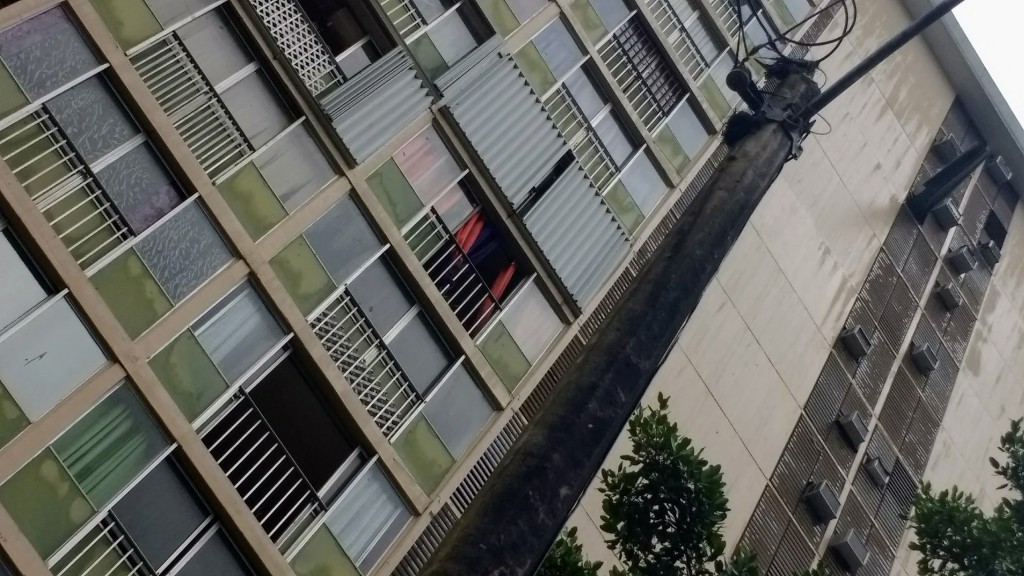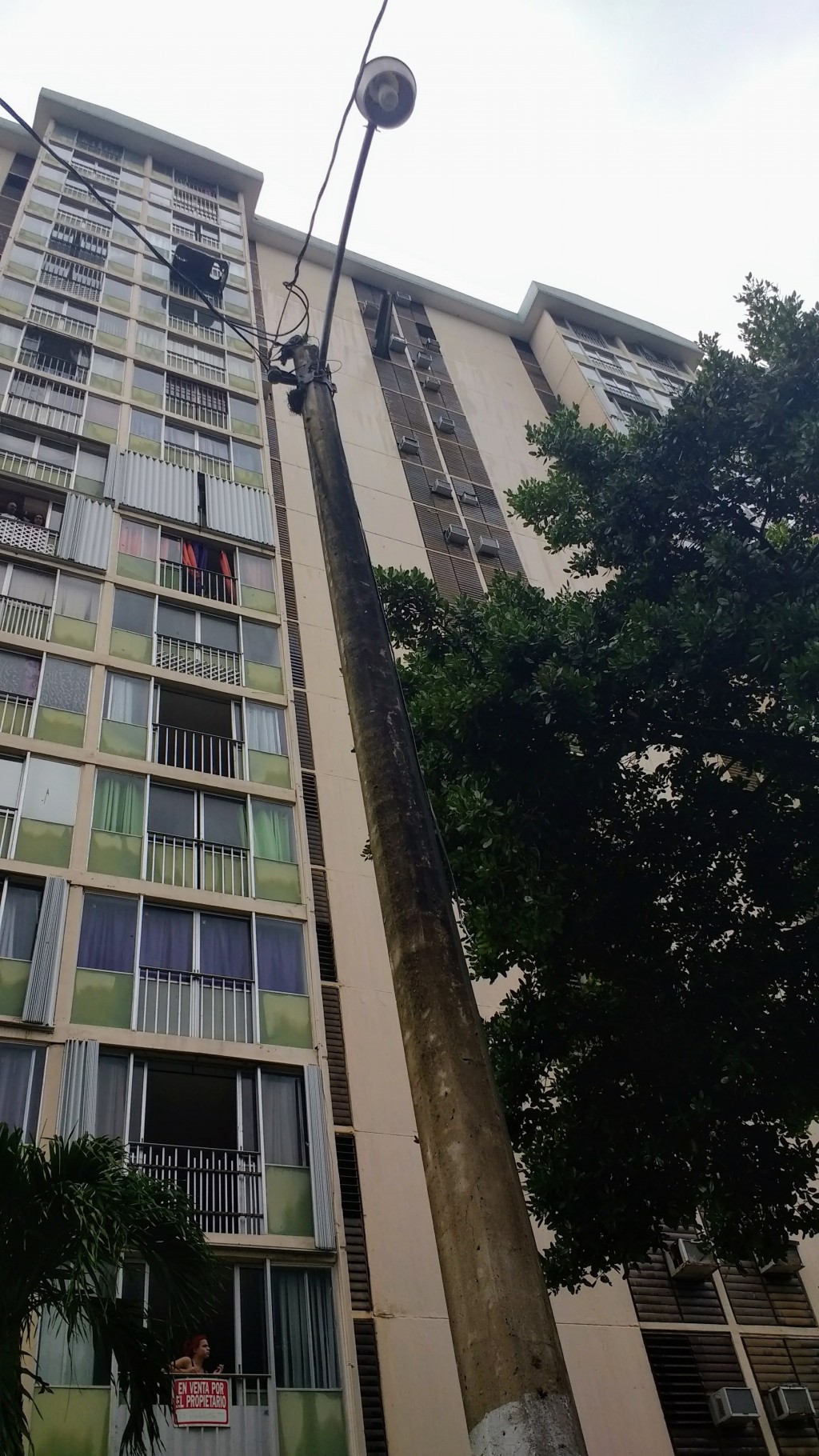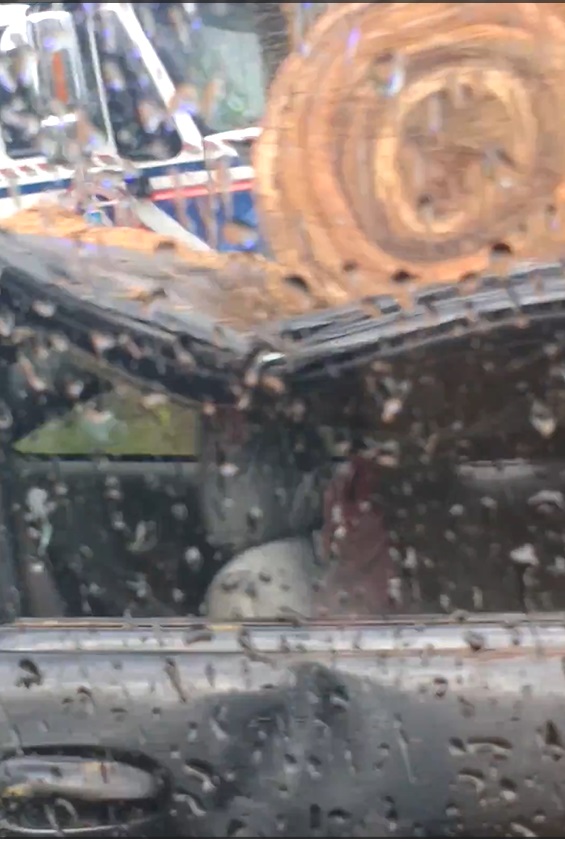Is Global Warming Changing Atlantic Hurricane Patterns as Predicted?
I put this subject under Economy & Government because global warming will have a major impact on both world economies and world governments.
One of the many predictions made by global scientists about one the most damaging effects from increasing temperatures around the globe is an increasing frequency, size, and variability of Atlantic Ocean (which includes the Caribbean and Gulf of Mexico) hurricanes.
Man-made global warming began with the industrial revolution in the mid-1800s. That is when massive amounts of CO2 started being pumped into the atmosphere. The rise in CO2 levels as both immediate and stark. That is why this period is used as a baseline for measuring the rise in global temperatures.
Scientists know what happens when average temperatures cross certain thresholds - and it is not nice. They know because looking back at earth's history tells us. The agreed upon critical level is 1.5 to 2 degrees Celsius above the average temperatures just as the industrial revolution kicked off.
WHAT will happen after critical mass is reached is not open to debate for anyone without an agenda. WHEN it will happen is the $64,000 question. The when is in about 12 years IF nothing is done between then and now, according to the latest calculations (it is worrisome to note that as more data comes in and the models get revised, they find a consistent underestimation of how much time is left.
Most scientists now say that we are ALREADY past the point-of-no-return for some damage to happen. Seas WILL rise and some coastal cities WILL flood (Miami) and some coastal lands are already disappearing under the waves (Louisianan, for example)
ONE way to determine if the Hurricane prediction is coming true or not is to measure the historical data over long periods of time. I did this using 30 year snapshots in time starting with 1850 - 1879 (baseline), then 1921 - 1950, and finally 1989 - 2018.
I calculated the mean and standard deviations for the number of Tropical Storms (TS), Total Hurricanes (TH), Total Tropical Storms plus Hurricanes (TSH), and Major Hurricanes (MH). Using these statistics you can test the hypothesis that nothing is changing - the argument of climate deniers.
Here is what you get:
1850 - 1879:
TS - 5.7 per year with a SD of 2.5
TH - 4.9 per year with a SD of 1.9
TSH - 10.6 per year with a SD of 4.0
MH - .87 per year with a SD of .78
1921 - 1950:
TS - 10 per year with a SD of 4.1
TH - 5.1 per year with a SD of 2.3
TSH - 15.2 per year with a SD of 6.1
MH - 2.1 per year with a SD of 1.7
1989 - 2018:
TS - 13.7 per year with a SD of 4.7
TH - 7.3 per year with a SD of 3.4
TSH - 20.9 per year with a SD of 7.6
MH - 3.2 per year with a SD of 2.1
NOW, if the climate deniers are right, then each 30-year period would look roughly the same because the samples come from what they claim is the same population of hurricane activity. If those who believe the climate is changing are correct and the average temperatures ARE rising, then each sample would come from different populations and have statistically different averages.
Without getting into the details, which I will present in a Hub, but I will tell you the scientists predictions about hurricanes are true.
It is easy to see there is an upward trend from time period to time period. From 1850 until now, Atlantic hurricanes ARE getting more frequent and more violent.
Further, standard deviations are measure of variations. It is clear that the storms are becoming more variable as well.Two updates to the Global Warming crisis.
The first is a ruling by the International Court that Switzerland violated the human rights of 2,000 elderly Swiss women by not addressing Climate Change adequately enough. The plaintiffs argued that the Swiss legislature endangered their lives by ignoring global warming.
I think we have a similar case brought by the youth in Montana.
https://edition.cnn.com/2024/04/09/clim … index.html
The Colorado Hurricane Prediction Center just issued its April forecast: It is the Highest EVER by a long way!!!
https://edition.cnn.com/2024/04/04/weat … index.htmlYep, I am fully aware of the increase in frequency of storms in Britain; when I was a kid, and when first married, storms in Britain were not that common e.g. you might get some stormy weather in October, but not much else the rest of the year, except for the odd occasional storm once in a blue moon.
These days, over the last 20 years or so, storms in Britain have become common place, and we now get them most of the year round; so much so that from 2015 the British Met Office (Meteorological Office) started to name storms alphabetically that are likely to cause structural damage, and which haven’t already been named by the USA e.g. a remnant from a hurricane across the Atlantic from America. The storms in the UK starting with the letter ‘A’ from September and each subsequent storm for the next 12 months get allocated the next letter in the alphabet.
The most recent storm, which hit the UK on the 4th April, being named ‘Kathleen’ e.g. excluding any remnants from American hurricane (named by America) is the 11th storm to hit the UK since September last year.We finally made it to England in August of last year. Our last stop was in Cork, Ireland. We were already back from our excursion when we found out the ship was calling all excursions back so they could hightail it out of the port. It seem a very big storm (Betty) popped up and was headed our way.
We made it out of port OK, but boy did we have quite a ride that night. Both Mary and I sort of enjoyed all the excitement and rolling back and forth. Apparently, the storm did a bit of damage in Cork.That must have been quite an excitement - yes Cork got the brunt of storm Betty, as shown in this short video clip below; fortunately we didn’t get affected by storm Betty to any great extent in Bristol (West County/South West England).
Storm Betty: https://youtu.be/NEvDmtW6-fg
Although we did caught in storm Babet a couple of months later (Oct 2023), while driving back from Hastings to our holiday caravan (on holiday in South East England); it was just a 16 mile drive, but a treacherous 16 mile drive in the storm.
Storm Babet: https://youtu.be/3_2E4JMsoc8
Every year I see on the British news hurricanes sweeping across America e.g. Florida etc., I can’t imagine what hurricanes must be like, as it’s something we don’t get in the UK; all we get, by the time it crosses the Atlantic from America to Britain, is the remnants of the hurricanes in the form of storms.
One interesting change in the climate in Britain over the last 60 is the dramatic decrease in thunderstorms? When I was a kid we would get thunderstorms in Bristol every August, that would last all night, such a spectacular show that I would often sit up to watch it with my mother – But since the 1960s we’ve hardly had any thunderstorms, and when we do, they are short lived e.g. lasting less than an hour, sometimes just minutes! Why we get significantly less thunderstorms in the UK these days, I don’t know?
We also surprisingly get on average 30 tornadoes a year in the UK; I’ve never seen one, I’ve only seen them on news clips on the TV; but unlike America, the tornadoes we get in Britain are typically small and short-lived, but can cause structural damage. Looking on the Internet for more information, unlike storms, which are on the increase in Britain, with climate change; there doesn’t seem to be any evidence to suggest an increase in tornadoes in the UK.
Although I've never seen tornado in person; with heatwaves now being common (almost an annual event) in Britain, I have seen dust devils in recent years - which is quite a novel sight for me.
Tornado in Birmingham, England in July 2005: https://youtu.be/6Eq3Kuyc6TwIt looks like Babet was a bit worse than Betty. The former seemed to me mostly water damage from lots and lots of rain while the latter seemed to have lots of wind damage.
The tornado was pretty strong from what I could see. And since they don't happen there often probably very surprising.
I actually got caught inside one once, albeit a small one. A few days after 9/11 I left my office building to go home, it was about a quarter mile SE of the Pentagon. Several streets were blocked off due to the attack on the building and it caused a traffic jam on my route home. So I was stuck in it rounding a corner and pointing toward the Pentagon when the radio started reporting a tornado heading this way from the South. Pretty soon it arrived and swooshed right over us, rocking the car like crazy. It was also blowing branches around and one passed right over my hood and slammed into the car next to me - I still remember the driver screaming.
Anyway, it kept on heading North and went over the Pentagon and kept on going where it gathered some strength. It finally got to a college in Maryland on the other side of Washington D.C. where sadly it picked up a car with a couple of college girls in it and tossed the car over a dormitory killing them.
Also, if you are interested, I wrote an article about my experience with the attack on the Pentagon. http://hub.me/a7NXMYeah, the tornados in the UK are infrequent, just 30 a year, which is insignificant to the number of tornadoes in America; and unlike some of the ones you get in America the tornadoes are small and short lived e.g. they last just a few minutes at most, and travel less than a mile, and the diameter of the tornados in Britain at the base are no larger than a car.
As small and short lived as they are, if a building happens to be in the path of a tornado in Britain tornados can still do damage, as seen on the video; but as you said, it is very rare in the UK, and thus when it does happen it does make the News.
A double wow - 1st, although on American TV documentaries I’ve seen American tornado chasers chase tornados (for fun - storm chaser), and your experience where they actually announced on the radio where tornados are and where they are heading – I still find it hard to imagine what that must be like in that in the UK tornados don’t last long enough to be reported and tracked, only lasting a few minutes and travelling less than a mile. The 2nd wow – you actually being inside a tornado, I guess that must be quite a harassing experience?
Thanks for the link to your article; a sad day, which we watched in horror on TV from across the pond – But to actually be caught up in it as you were, must have been harrowing.
In reading through your article, it all bought back some memories of what we saw on TV from across the pond on that horrific day. One point that caught my attention is near the end of our article where you quite rightly criticise those who complain about the security procedures at airports:-
Where you go on to say “There is some legitimate complaint that there are better techniques than what we are using; dogs for example.”-
• Yes, dogs have proved their worth, so there should always be scope in this area.
• And yes, there are better technologies (techniques) on the horizon.
The UK Government has commanded that all UK airports upgrade to the latest technology, and set a dead line for this to be done by the Spring of 2024; BUT, installing the new equipment is extremely expensive and complex, and so there are delays in its installations e.g. only a couple of airports have done the installation so far – the others are aiming to get the installation complete by the Spring of next year.
This British newspaper article explains: https://www.theguardian.com/business/20 … ban-summer
Fortunately, the tornadoes we get here (for now?) are also small, well, I mean, not too strong. EF 0 and EF-1. Since record-keeping began in 1950, 24 tornadoes have hit Puerto Rico. What, I believe, is significant, the first one recorded was in 1974. The other 23 have hit since 1995.
Btw, Eso, I was in the path of a 2017 tornado. We didnt know there was a tornado, obviously. My husband and I were waiting at the access control gate of a building. It started to rain. Leaves and small branches began floting. I said to my husband "Is this a tornado? Oh my god, I think it is a tornado." But tornadoes are not common here, so he was like naah. LOL. Then suddenly, the car started rocking, the sound of the wind was awful, and the car windows started to vibrate. A big branch fell on our windshield. We were like WTF. After everything was calm, we got access to the parking of the building. Many were outside in disbelief.
A lot of trees fell down. There was a big metal piece that flew and went through a window of the building. And near by house was destroyed.
There was a huge tree that fell and crushed a car. That could have been us if only we were there a minute later.
One day later, when it was confirmed that it was a tornado, I checked the path, and yes, we were in its path. Im glad it was only an EF-0.



(Sorry, the last photo is from a video. We had to wait for the firemen to cut the tree cause it was blocking the road. I shot the video when we finally could drive through.)Wow! Small world. Who would have thunk two people living in places where tornadoes are rare (Virginia has very few tornados as well) would have both been inside one and writing about it on the same forum.
You're right! I didnt think about that before. Freaky!

Thanks for the feedback; I’ve learnt something new – the EF Scale (Enhanced Fujita) Scale.
On checking the web, the EF-0 & EF-1 that you mention being typical where you live; EF-0 is winds between 65 & 85 mph, and EF-1 is winds between 86 & 110 mph.
I double checked for the UK, and apparently recorded tornadoes are recorded using the International Tornado Scale rather than the EF Scale?
Anyway, apparently typical wind speeds of tornados in the UK range between 75 mph & 100 mph – which seem to be similar to the wind speed of tornados in your neck of the woods.
Thanks for the photos; it must have been quite a harrowing experience.
Although I’ve never seen a tornado in person, we’ve had a couple of strange events in our back garden where large heavy objects have been turned upside (just twice over the decades we’ve lived here):-
One occasion in particular, it was quite a fine sunny day; and nothing more than a light gentle wind with the occasional gust. At the bottom of our garden, behind a shed, was a large water butt, filled to the brim with water – so you can imagine how heavy that is. The water butt collects rainwater from the shed roof.
On this particular day, which as I said was a fine sunny day, with nothing more than a gentle wind with the occasional gust, I was in the back garden near the house with my son, when suddenly we heard a loud bang at the top of the garden. We went up the garden to investigate; only to find that the wind had lifted the water butt into the air and tipped it upside down, on the same spot where just minutes before it was standing full of water.
I’m assuming that under the weather conditions I described that it wasn’t a small localised tornado, but certainly a freak, short lived, localised, wind vortex of some sort? It just shows the power of the wind.
Atlantic hurricanes ARE getting more frequent and more violent.
I live in the Caribbean and this is absolutely right.
We are a couple of months away from the next season and Im already worried. Hoping we dont get hit this year.I do not envy you where you live - and I am in Florida, lol (probably the only spot in Florida that hasn't been destroyed by a hurricane at some point in the last 40 years.
I could never take this "I do not envy you where you live - and I am in Florida" seriously.

Joking aside, its getting hard. After hurricanes Irma and Maria and worse, their aftermath, then so many earthquakes, plus a pandemic, I dont think we can "survive" (emotionally) another major hurricane. We are exhausted already.
* We are even getting tornados now! LOL
LOLI wish I could say I feel your pain, but there is no way that I can not having lived (living) through it.
We’re out all day today (leaving shortly), so I’ll not have a chance to respond to these posts until tomorrow.
However, I did find a couple of videos on YouTube of tornados caught on camera in the UK; which is rare in that unlike the USA tornados in the UK are much smaller and short lived – typically the base being about the size of a car, lasting for just a few minutes, and travelling less than a mile before it dissipates.
Tornado whirls through Northampton, England causing minor damage (3 years ago): https://youtu.be/gP0X-TVmlmY
Tornado crossing a motorway in England (no cars hit, but you can see the brake lights go on, on a couple of cars in front, as they slow down to avoid the tornado), and then the tornado dissipates (9 years ago): https://youtu.be/dt7V3f3wZ1M
The moment a tornado swirl forms in Hampshire, England: https://youtu.be/1mhS99QjqZ0
Related Discussions
- 31
Where is that Pesky Global Warming when you need it?
by MikeNV 15 years ago
Coldest Russian Winter in 30 years... that's crazy. Everyone knows the planet is getting warmer. Those Russians must be up to something hoarding all that cold air.Can't Al Gore do something about this deep freeze in Russia. Maybe he could work on some charts and graphs showing how...
- 129
49% of American believe climate change is a hoax or "aren't sure"
by Sychophantastic 11 years ago
These are results of a public policy poll:Q1 Do you believe global warming is a hoax, ornot?Do ................................................................... 37%Do not ............................................................. 51%Not sure...
- 141
Al Gore sued by over 30,000 Scientists for Global Warming Fraud
by MikeNV 15 years ago
Turns out there are a few people Al Gore does not want to admit exist.http://www.youtube.com/watch?v=jQKzmHkJfGkMaurice Strong... the guy that most of the people buying into the Global Warming Fraud know little abouthttp://www.youtube.com/watch?v=ih1UPeEK9IgGlobal Governance... Carbon Tax...
- 207
Can the Earth Survive Four Years of a Trump Presidency?
by Scott Belford 9 years ago
There are two major would shaping forces at risk with a Trump presidency; an economic meltdown brought on by a sharp decline in American productivity, and, a much more important one, the environment. I will leave the economy to another forum, for it is the environment I am much more worried...
- 46
The Global Warming Scam has failed. Time for Global Cooling . .
by sannyasinman 15 years ago
Global Cooling and the New World Order ... http://blogs.telegraph.co.uk/news/james … rld-order/
- 322
Did you see this research on global warming??
by Holle Abee 9 years ago
http://opinion.financialpost.com/2011/0 … w-settled/








